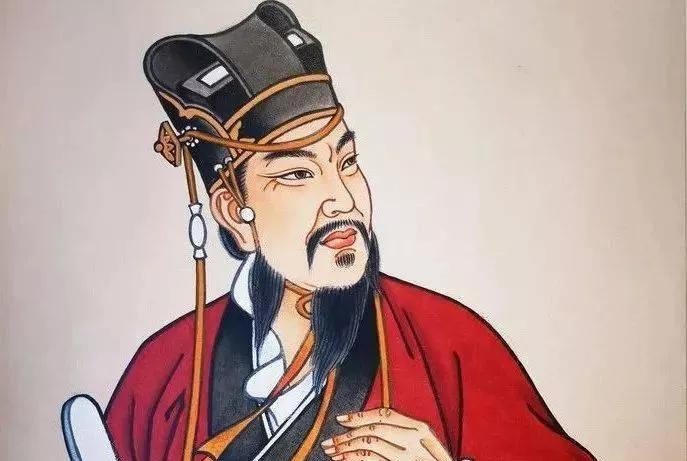
Di Renjie historical photos
Di Renjie (630-700) was born in the fourth year of Tang Zhenguan (630) and died in the first year of Wu Zetian's Jiushi (700), a native of Taiyuan in the Tang Dynasty and the prefecture of Taiyuan. As the chancellor of the Wu Zetian dynasty, he was an outstanding politician.
In his early years, Di Renjie was admitted to the Ming Dynasty and served as the Judge of Bian Prefecture, and later on the recommendation of Yan Liben, he served as the Governor of The Prefecture of Fa Cao.
Then, Di Huaiying was promoted to Dali Temple, he enforced the law strictly, just and righteously, and in one year he cracked a large backlog of Chen cases, involving more than 17,000 people, and did not wrongfully accuse a single person, thus greatly enhancing his reputation.
Stills of Detective Di Renjie
In 676, the generals Quan Shancai and Zhonglang general Fan Huaiyi mistakenly cut down the Zhaoling cypress tree, and Emperor Gaozong wanted to put them to death, but Di Renjie believed that the two of them had committed a capital crime. Tang Gaozong said very atmospherically, "They want me to be an unfilial descendant." Di Renjie argued on the basis of reason to save the two from capital crimes. A few days later, Di Huaiying was promoted to the position of Imperial Attendant.
In 686, Di Renjie served as the assassin of Ningzhou, and took up his duties to properly handle ethnic relations, which was deeply loved by the people, and the people also erected a monument to praise him.
In 688, Di Huaiying was appointed as the governor of Jiangnan. More than 1,700 folk ancestral temples were burned down, leaving four ancestral temples of Xia Yu, Wu Taibo, Ji Zha and Wu Yuan. Not long after, Di Renjie was promoted to Wenchang Right Cheng and Yuzhou Assassin History.
In September 691, Di Renjie was promoted to Tongfengge Luantai Pingzhangshi. Wu Zetian said: "Your political achievements in Runan are very good, but some people say bad things about you, do you know who it is?" Di Renjie said, "If Your Majesty thinks I am wrong, I will change it; if Your Majesty knows that I am not at fault, this is my luck." I don't want to know who the person who said bad things about me is, I regard him as my friend, I would rather not know" Wu Zetian felt very impressed.
In 692, Di Renjie was framed by Lai Junchen for rebellion. At that time, the national law provided that a person who voluntarily confessed to treason at trial was exempt from capital punishment. After Di Renjie was arrested, he immediately confessed, "Lai Junchen received a satisfactory confession and took Di Renjie into custody without strict precautions." Di Renjie borrowed a pen and paper from the jailer, tore a piece of cloth from his clothes, wrote his grievances, and sent him home. The creep guarding the prison had no doubts.
Di Renjie's son Di Guangyuan received the letter and handed it to Wu Zetian. After Wu Zetian saw it, he questioned Lai Junchen. Lai Junchen said: I said that he was arrested as if he had not yet been tortured in prison, and he was recruited" Wu Zetian ordered someone to go to check it out, and Lai Junchen forged Di Renjie's death list and asked the emissary to give it to Wu Zetian to check.
Wu Zetian summoned Di Renjie and asked, "Why did you admit to rebellion?" Di Renjie said, "If I hadn't admitted to the rebellion, I would have died of torture." Wu Zetian asked again, "Then why did you make a thank you death watch?" Di Renjie said, "I didn't write it." Wu Zetian asked people to take out the Xie Death Watch, only to learn that it was a forgery, so he released Di Renjie and demoted him to Peng Zeling.
In 696, the Khitan rebelled, and Jizhou was captured, and Hebei was shaken for a time. In order to stabilize the situation, Wu Zetian used Di Renjie as the assassin of Wei Prefecture. After Di Renjie took office, he changed the practice of his predecessor Shi Shi who tried his best to get the people into the city and repair the guards, so that the people could return to the fields to farm. When the Khitans heard this, they withdrew. Soon, Di Renjie was made the governor of Youzhou and was given a purple robe and a turtle belt. Wu Zetian also wrote twelve golden characters on the purple robe in recognition of Di Renjie's loyalty. Soon Di Renjie was once again appointed as chancellor with great merits.
Wu Zetian had great respect for Di Renjie, often calling him an elder of the country, not calling him by his first name, not approving his retirement request, and not allowing him to bow down to himself, saying: "Whenever I see you kneeling, yuan's body will feel pain. He also warned the officials: "There is no major military and national affair, don't bother Elder Di Guo." ”
In September of the same year, Di Renjie died of illness at the age of seventy-one. When Wu Zetian heard about this, he cried and said, "The court is empty. "Posthumously awarded as Wenchang's right minister, and did not go to the dynasty for three days." After that, whenever there was something important in the court and didn't know what to do, Wu Zetian would sigh, "Lord God, why did you take away my Di Guo Lao so early." ”
In 705, Li Xian succeeded to the throne, later Emperor Zhongzong of Tang, and posthumously awarded Di Renjie the title of Sikong. After Emperor Ruizong of Tang succeeded to the throne, he posthumously created Di Renjie the Duke of Liang.